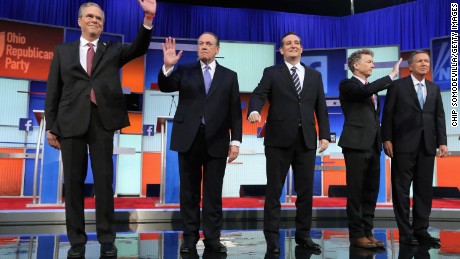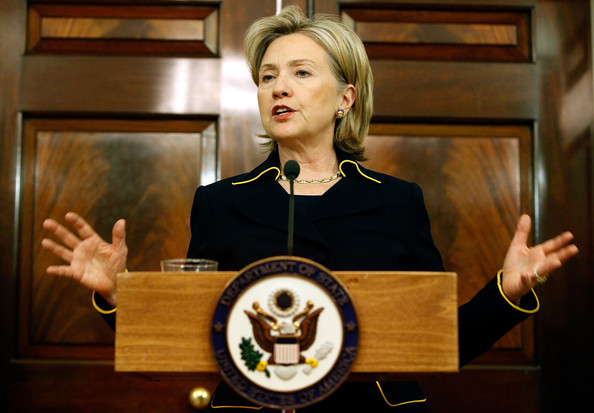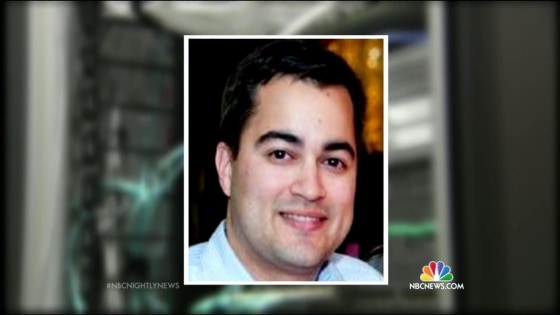Actually, the title of this post is a misnomer. They are the public’s emails. But as with the contents of the U.S. Mint, public ownership and public access are two different things.
What we do going forward is what matters most. Facing these State Department emails, let’s start with some constructive recommendations. Here would be my recommendations for policy and best practices, if I could vote on them.
From this time forth,
- Work emails for a government agency should be done using government-issued equipment. “GI” wasn’t a bad name for the guys who bore it.
- If government personnel choose to send emails or other communications they deem private or personal, on government equipment, it should be with the understanding that the messages are subject to authorized scrutiny. (Many university campuses have pretty much this arrangement, with considerably less of a rationale than the State Department would have.)
- When someone’s government service ends, emails and other correspondence should be reviewed by an independent entity (three or more objective people, with enough sense and character to divide up the job equitably). The independent entity would determine which communications are work-related and which, if any, are not.
- The non-work-related communications would not be deleted. They would be quarantined for 50 years. The work-related correspondence would be archived according to policy.
- To keep the difficulty and expense for others to a minimum, government workers should be advised to keep their personal communications while at work to a minimum. Restrict personal communications to their personal email accounts, and restrict personal emailing or telephoning to their off time (lunch, breaks, after hours).
Emailing is still a relatively new form of communication (if older than IM, texting, or tweeting). Policy to cover communication in government still needs refinement. State and local governments, businesses at all levels, academia, the judicial system and the world of medicine have the same issues.
Not that there aren’t worse problems. 
That said, Secretary Clinton’s arrangement is unique. As described yesterday in the Washington Post,
The server that Clinton used as secretary of state was stored at her home in Chappaqua, N.Y., and was shared with her husband, former president Bill Clinton, and his staff. The device was managed during that time by a State Department staffer who was paid personally by the Clintons for his work on their private system.
Setting aside lurid suggestions floated by the GOP, the most rational conjecture as to why Secretary Clinton would set up a private email server is that she wanted to hang on to the material to recycle later, in more books about her career. This is the simplest theory that fits the known facts, including the Clintons’ conduct when leaving the White House in January 2001.

Continuing the saga as outlined most recently in the Post, the server with the emails was taken over by Platte River Networks in 2013; the emails were removed from a second server in 2014; and Clinton’s attorneys then separated the emails they designated as work-related from those they designated as entirely personal. The good news in the most recent Post report is that the deleted emails may be recovered. I hope so; and if there is any question about which emails should released for public reading, that’s what judges are for. My understanding of Clinton’s previous statements is that she and her attorneys intended to turn over all work-related emails.
Clear enough, as far as it goes. However, media discussions of the emails are usually confusing, because the concepts of “public” and “private” are confused. Secretary Clinton’s work as secretary of state belongs to the public. This statement does not mean that all details can be released to the general public. In the public interest, some operations of a public office need to be kept confidential. In the public interest, personnel matters are kept private; government employees like other people have a right to privacy. In the public interest, the safety and security of people who work for us, like the Secretary of State, are protected. Again in the public interest, the safety and security of dignitaries, government officials, and private citizens of other countries are protected.
That matter of safety and security–unfortunately–is one of the places where Hillary Clinton’s private email server fell down.
Some clarification is necessary here.
I have ignored Republican hype about Benghazi from start to finish, partly because I am wrapping up a book on another subject; partly because the investigation so far looks bogus.
(‘Benghazi’ hearings /One /GOP tack to /Undermine /Sense.)
The party that campaigns on “shrinking government” has little room to talk about security. Shrinking “government” means shrinking security. It means shrinking information. It means shrinking advance notice and advance warning and advance planning. It means shrinking tactics, let alone strategy. It means shrinking transparency, oversight, and accountability. It means shrinking the talent pool, in diplomacy, security, and the military as well as in everything else. In practice, it means outsourcing, off-shoring, and subcontracting–all of which are security breaches waiting to happen.
I might add that a party willing to violate the Logan Act, eager to invade other countries, and always ready to downgrade diplomacy and diplomats is not positioned to point fingers over the deaths of heroic foreign service officers and ambassadors. You cannot trust a faction that writes a separate open letter to the state of Iran. And the contestants in the Republican race for the White House have expressed little awareness of what the U.S. Foreign Service, and U.S. diplomats, face. When they bring up dangers abroad at all, it is generally to voice a scurrility about President Obama, who inherited all the disasters left by the previous administration, has done more to contend with such than any other administration in U.S. history–and has had to surmount opposition to even the most common-sense diplomacy, from the very people who created the disasters.
We could also add the party’s over-all allegiance to thuggery, violence, tough talk, and the weapons industry to the list, while we’re at it. The GOP as the party of “security”? Small wonder it scrambles to deflect attention from its own problems, to a lightning rod like either of the Clintons.

So it was a matter of surprise and no little chagrin to learn that the Secretary of State had set up a private email server to handle her State Department work. In other words, she conducted government work on equipment that she purchased and controlled privately. Whether the equipment was “private” in the security sense remains to be seen. Clinton did keep it private in the ownership sense (private property); she did not donate it to the State Department. I am not going to jump to conclusions, especially about security matters, and I have never been a fan of hysteria, especially in politics or the news media. But the emails released so far do reveal a few facts.
Setting aside both the wild accusations and conjecture from the right wing, and the inaccurate or smarmy defenses from Clinton and her allies, some valid statements can be made.
- Many of the Clinton emails contained sensitive information. No matter how delusional Republicans in Congress get, the actuality remains that of 4,368 emails released in August, hundreds indicate sensitive details from the daily operations of State and/or negotiations with foreign individuals or entities, in 2009 and 2010. Leaving diplomacy itself out of the picture, if you genuinely care about the safety of the people involved in it, you might care that more than 1,500 emails mention or discuss a “call” or “meeting” or “schedule,” often signaled in the subject line, with the whens and wheres. Thus if some ill-disposed person (besides Sen. Cotton) wanted when-and-where on Secretary of State Clinton or on people she was dealing with, hundreds of emails contained the information. Searching for the predictable word “call” generates 1,409 emails. Many contain “call” in the subject line. Searching for “meeting” generates 836 results, many with “meeting” in the subject line. Some were sent by Clinton, although understandably she received far more than she sent. Often, dates and/or times of the call or meeting are included, and often in the subject heading–along with the names of the people involved. The 2009-2010 emails contain few references to Libya, and none to J. Christopher Stevens, Sean Smith, or Benghazi; emails from 2012-2013 will presumably contain more.
While waiting to see those relevant emails, we basically have to hope that no antagonists hacked them or read them, or did so effectively. Clinton’s emails often detailed the when and where of her schedule, with times, dates, places, and names. About 60 emails are a “Mini schedule” for Clinton (heading in subject line). “Mini schedule” emails appear throughout 2009 and 2010. So do emails featuring the word “schedule” in general, with 377 results, sent and mainly received by Clinton, again with “schedule” often indicated in the subject line. The phrase “conference call” generates 31 results, nine from Clinton and the rest received by her; several of these also signal “call” or “schedule” in the subject line.
One oddity is that this set-up was created by someone who, according to the Post, has imposed a series of barriers for reporters trying to get through with questions for her 2016 campaign, and who has complained for years about her lack of privacy, about constant media scrutiny, etc. As Secretary of State, Clinton seems to have assumed that her position protected her privacy, including communication channels she set up outside State.
- Hundreds of Clinton’s emails show consciousness of security. References to the “secure” turn up 645 times in the August batch of emails, sometimes in the subject lines. “Secure” includes a “secure line” (15 results), or “talk secure” (13 results, two sent by Clinton), or a “secure phone” (5 results) or a “secure call” (16 results, 2 from Clinton). An email of March 3, 2010, refers to Clinton’s “yellow phone.”
The acronym OPS turns up 148 times. This abbreviation seems to refer to the Watch Officer, State Department Operations Center S-ES/O, 202-xxx-xxxx, Andrew Kim Johnson for one. About 25 of these emails were sent by Clinton, although others are replies with messages sent by Clinton in the email chains. Clinton herself often referred to OPS.
This point brings up a third one.
- The email chains show combinations of personal and government, government and political, and personal and political. Partly such combinations would occur in any office or organization. Whose work emails would be devoid of all reference to birthdays, births, or congratulations? But this server and this government correspondence–as we now know–were not in a workplace. It’s funny in a way that Clinton operated a small State Department communications center in her own and her spouse’s private residence. Clinton donors strike me generally as exactly the people who would tend to ridicule a political candidate, for example, whose campaign headquarters were his home.
In any case, some of the email-chain combinations look less benign. There is no denying that Clinton used the OPS secure line for private matters and/or for political matters, not just for high state matters. She refers to doing so. An easy example, not lurid, comes from February 2010.
On February 9, Clinton emailed several colleagues and friends (7:39 a.m.) that New York Times columnist David Brooks “Took a shot at me in his column today,” and asked, “Any idea what prompted it?”
The recommendation in reply was to bring in Brooks, and perhaps other rightwing columnists, “for an OTR with you.”
Clinton agreed but suggested that something more was needed: “Agreed–full speed ahead. But, I think we may also need a more aggressive strategy of pushing our message. Can you call me at home thru OPS? Thx.”
A career State Department employee also replied, but keeping the separate tracks separate, “Philippe and I had an offline conversation about this and I agree entirely” that the Secretary should talk with Brooks and others.
One could argue that mingling social and other emails in the same chains might assist security: the mixed email chains and the mixed subject lines might camouflage, or at least not flag, high state matters. Or so I thought, before I noticed all the emails headed with indicators about what the Secretary would be doing that day, with whom, and when.
More later.







